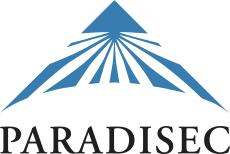Do you own your records?
If you work at a university, or have received grants to do research, then you may not be able to archive your records without obtaining a release form from your funders or employers. In Australia, some universities own intellectual property (IP) rights in the material produced by their staff.
You may not realise that you need such a release form when you leave one employer and move to another, and take your research materials with you.
But if you want to archive recordings, notes, and other files, then you should be sure you are legally able to do that.
Data management plans
It is important that you know who will own the intellectual property (IP) rights in works that you create before you agree to a data management plan.
If you are employed (for example by a university) then your employment contract may specify who owns and controls the IP rights, including copyright, in your output. Employers typically claim IP rights in research output. If this applies to you, it may impact how your material is used and archived as the right to reproduce these works will be controlled by your employer / university.
Your university may also ask you to fill out a data management plan that controls the use of all IP in your research output. You may be able to raise this with the university by deleting such a clause, initialing it, and asking to negotiate this prior to signing. Universities are generally concerned about controlling IP where it has a potential to be commercialised (make money) rather that in cultural recordings.
Copyright
Copyright automatically applies to original works created by an author. Copyright does not need to be registered (like other forms of IP such as patents, designs and trademarks) and it can be licenced or transferred (assigned) to others. As an author you may agree to assign your copyright in cultural recordings to the individuals / communities with which you are working. This may in fact be a condition of these individuals / communities agreeing to work with you, such as language speakers for a dictionary. Be aware this may mean that re-using such material may require each copyright holder’s permission.
Orphaned work
If a work (such as a dictionary) is published, but the publisher no longer exists, then such a work may be considered orphaned. That means there is no-one to administer the IP rights in the works and permission to reproduce or use this material cannot be obtained. If you have made all reasonable attempts to contact a publisher to obtain permission to use such work, but cannot identify a rights holder, you may proceed (with caution). If a dictionary was created by a known author then you must clearly attribute the work to them.
Moral rights
Moral rights provisions were added to the Copyright Act in 2000 and give creators and performers of copyright material the right to be attributed, the right to not be falsely attributed and the right to take action if their work is treated in a derogatory manner. There is no need to do anything to ensure you have moral rights as they arise automatically once you have created a copyright work
Reading:
Newman, Paul. 2012. Copyright and other legal concerns. In Nick Thieberger (ed.), The Oxford Handbook of Linguistic Fieldwork, 430-456. Oxford, New York: Oxford University Press.
Australian Libraries Copyright Committee resources page http://www.libcopyright.org.au/content/resources
Orphaned works: https://www.copyright.org.au/ACC_Prod/ACC/Information_Sheets/Orphan_Works.aspx?WebsiteKey=8a471e74-3f78-4994-9023-316f0ecef4ef
Prepared by Nick Thieberger, with assistance from Thomas Allen, in August 2019
